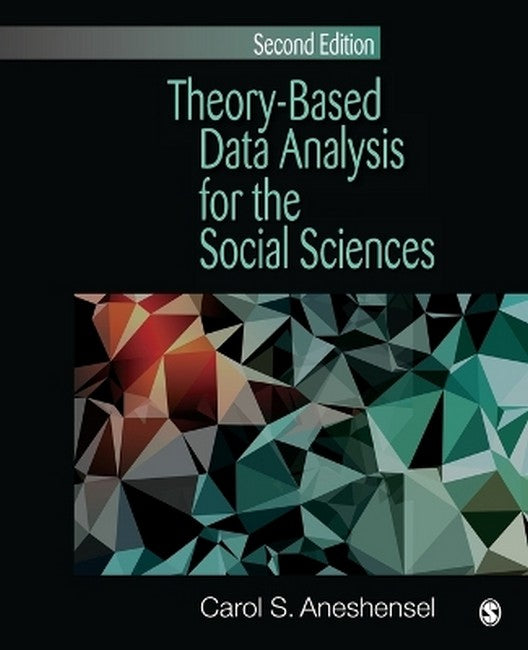Carol S. Aneshensel is a sociologist (Ph.D., Cornell University) and Professor at the University of California, Los Angeles. She specializes in the fields of the sociology of mental health and medical sociology, with an emphasis on the social origins of stress and its impact on depression. She has been Principal Investigator for numerous studies funded by the National Institute on Aging and the National Institute of Mental Health. She has published more than 75 peer-review journal articles and several books, including her work as lead editor of the Handbook of the Sociology of Mental Health, Second Edition (Springer, 2012). She has received awards for distinguished contributions from the Sociology of Mental Health and Medical Sociology sections of the American Sociological Association (ASA). Theory-Based Data Analysis for the Social Sciences received Honorable Mention for Best Publication in 2003 from the Sociology of Mental Health section, ASA.
Request Academic Copy
Please copy the ISBN for submitting review copy form
Description
Preface Acknowledgments About the Author Part I. Conceptual Foundations of the Elaboration Model Chapter 1. Introduction to Theory-Based Data Analysis Chapter 2. The Logic of Theory-Based Data Analysis Chapter 3. Relationships as Associations Chapter 4. The Focal Relationship: Causal Inference Part II. Regression with Simple Random Samples and Complex Samples Chapter 5. The Elaboration Model With Multiple Linear Regression Chapter 6. Regression With Survey Data From Complex Samples Part III. The Elaboration Model With Multiple Linear Regression Chapter 7. Ruling Out Alternative Explanations: Spuriousness and Control Variables Chapter 8. Ruling Out Alternative Theoretical Explanations: Rival Independent Variables Chapter 9. Elaborating the Focal Relationship: Mediation and Intervening Variables Chapter 10. Elaborating the Focal Relationship: Antecedent and Consequent Variables Chapter 11. Specifying Conditions of Influence: Moderating Variables Part IV. The Elaboration Model With Logistic Regression Chapter 12. The Elaboration Model With Logistic Regression Part V. Conclusion Chapter 13. Synthesis and Comments Glossary References Abbreviations Index
"In clear and accessible prose, this book presents a compelling logic for the analysis of non-experimental data. In the process, it clarifies the concepts of statistical association, confounding, and statistical control, and it provides really compelling elaboration schemes to make substantive, rather than purely statistical, sense of it all. It also provides a means for making causal assertions when the criteria of association, causal priority, non-spuriousness, and theoretical rationale are met." -- Robert Bickel "This text does a superb job of explaining critical concepts such as mediation, moderation, spuriousness, and control variable, using graphic illustrations as well as published articles as examples. I think the illustrated examples are really helpful for illuminating these concepts. Furthermore, the majority of empirical research in the social behavioral sciences utilizes regression, logistic regression, and path analysis. The book discusses many empirical articles utilizing these analytic approaches as examples. Thus, the contents of this book are highly relevant and understandable for those in early stages of research training." -- Eun Young Mun I think this is a very much awaited book. I think it is very well suited for PG level, particularly for those MA students who are writing their dissertations (and PhD students as well). As strange as it may seem, students struggle to understand what theory is and how it relates to data. For me this book engages comprehensively in these questions. There is a good discussion of how to work with variables, about the construction of associations and causalities. I wish I could teach more of this book in my MA course, but due to time constraints I would definitely recommend Chapter 1-4 (where the focus is on conceptual discussion). The book is very helpful for those constructing and designing their research. The book is not the 'beginner level'. It would be helpful if students already have some background in quantitative analysis, therefore I would not, however, recommend for BA level. -- Maria Karepova

